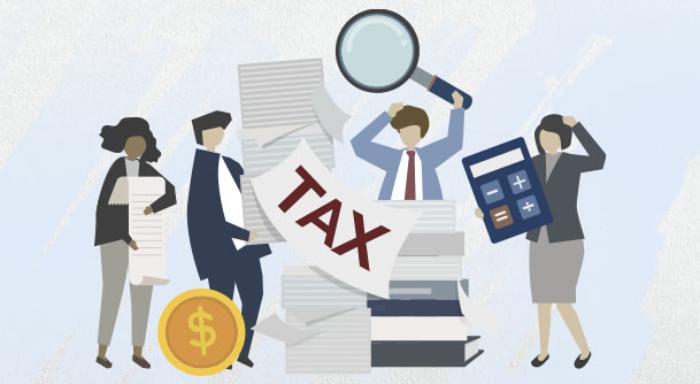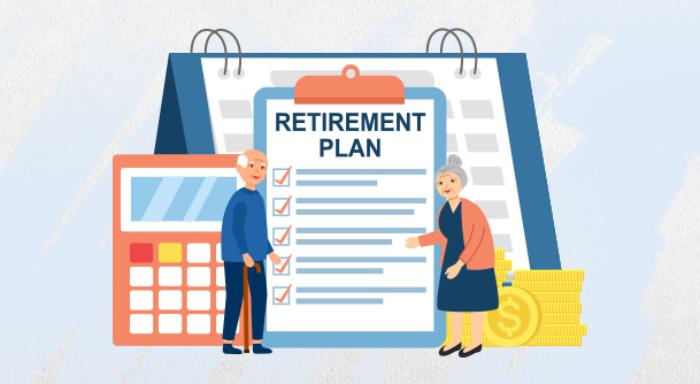What is a Voluntary Retirement and How VRS Comes into Play?
Blog Title
14318 |
6/17/25 10:50 AM |
Everyone dreams of the day they can stop working and relax in peace with their family… For most people, this dream is realized when they grow older and naturally retire. But contrary to popular belief, the elderly are not the only ones who can retire! Some people opt to retire much sooner than usual. An early retirement can help you enjoy your freedom when you’re a bit younger, or you can just choose to start a brand-new venture where you are your own boss.
What is a Voluntary Retirement Scheme?
The process of retiring early out of one’s own choice is known as “voluntary retirement”. Some companies even have a “voluntary retirement scheme” in place for long-term employees who want to begin their golden years a little earlier than usual. Under this scheme, the retiring employee will get a financial compensation for all their years of work. This compensation is usually quite lucrative and can help the retiree start their next chapter in life without financial constraints. As the name implies, a “voluntary retirement scheme” is completely optional, and it is up to the employee to choose whether they want to retire or not.
What Was the Objective of Introducing VRS in India?
Indian labour laws prevent companies from downsizing by laying off employees. Moreover, Indian labour unions also strictly oppose any attempts at retrenchment via mass layoffs. This is why the 1947 Industrial Disputes Act allows employers to provide a voluntary retirement scheme as an alternative to forced downsizing. This alternative allows employers to reduce their workforce while also benefiting the employees who are leaving. Moreover, as VRS is completely voluntary, its enactment was also approved of by Indian labour unions of that time.
How Does VRS Help Individuals and Companies?
Voluntary Retirement Scheme (VRS) is advantageous to both the employer and the employee.
Employees who opt for VRS get:
An early retirement with a decent monetary compensation which can help them move on to new ventures without having to worry about financial issues.
Employees can expect a lumpsum payout if they exit their company via a Voluntary Retirement Scheme.
The company also provide other benefits that further incentivize VRS such as a new car, appliances, stocks in the company etc.
On the other hand, companies that offer VRS do so for multiple reasons including:
Cost-cutting during times of financial turbulence.
Downsizing of departments to reduce managerial bloat.
Streamlining hierarchies to improve productivity.
Often companies end up letting go of employees due to various factors, but with VRS, a long-term employee also gets to benefit upon exiting from the company. Thus, a voluntary retirement scheme is mutually beneficial to both the employer and the employee who chooses early retirement.
What Benefits Do You Get When You Retire with a Voluntary Retirement Scheme?
If you choose to retire from your company voluntarily (and your company offers VRS), you get the following benefits:
A full and final payment of all dues owed to you.
Gratuity and Provident Fund payments.
An additional fund is paid out under VRS. This fund is calculated based on your current salary and the number of years you have worked at your company. This additional fund can help you retire with adequate savings or keep you financially stable while you look for another source of income.
When Should an Individual Consider Taking VRS?
If your company is offering a voluntary retirement scheme, and you’re eligible for it, then you should consider taking the VRS offer if:
You want to retire early with a lumpsum compensation that will support you during your golden years.
You want to move out of the company anyways and the VRS offer acts as a good exit point.
You want to move out of the company and start your own business.
The company’s managerial/hierarchical changes are disadvantageous for your in the long-term.
You want immediate access to your provident fund, gratuity etc. to prepare for major financial goals.
What are the Eligibility Criteria for Voluntary Retirement Scheme?
To be eligible for VRS, an employee must fulfil the following conditions:
An employee must be at least 40 years old or older.
They must work at the same company for 10 years or more. This limit may vary from company to company, but 10 years is the standard limit followed by most employers who offer VRS.
An employee opting for VRS cannot work for any other company during this period.
Of course, the company itself must offer VRS as an option for its employees. Note that not all companies in India provide this provision. Please check with your employer to find out if they offer a Voluntary Retirement Scheme.
Who are Not Eligible for Voluntary Retirement Scheme?
Only full-time employees are eligible for VRS. Other types of employees who are not eligible for VRS include:
Part-time workers
Contractual employees
Deputised employees (hire by one company to work for another company)
Directors of the company
Temporary employees or interns
How is the VRS Fund Calculated?
The additional fund paid out in a Voluntary Retirement Scheme is calculated using one of two methods:
1) Additional Salary for Each Year of Service: An employee receives 3 months of salary for each year of employment under the company. The additional salary paid out depends on the employee’s current CTC.
2) Salary Payable Until Retirement: The second method simply considers the employee’s latest salary and multiplies that amount by the number of months remaining until their natural retirement (as per company’s retirement age).
Your company may use either method to calculate your VRS fund, or they may use both methods and pay the lower of the two values.
Real Examples of How VRS Can be Useful
BSNL: In 2019, BSNL merged with MTNL and offered its long-term employees the opportunity to voluntarily retire. Over 92,000 employees opted for VRS and left the company. This not only benefitted the company (as they wished to streamline their departments) but also benefited the employees who left the company with a lumpsum payout.
Air India: In 2023, Air India planned to form a new workforce and reduce redundant roles in the company. To fulfil this objective, Air India offered VRS to its eligible employees. Along with the normal VRS payout, Air India also provided an additional incentive of ₹1 lakh to employees opting for VRS.
Hero MotoCorp: To improve efficiency and reduce redundant roles, Hero MotoCorp offered VRS to its eligible employees in 2023. Along with VRS, the company also offered exiting employees numerous other benefits including gifts, support with relocation, right to retain company cars etc.
Tax Benefits and Rules for VRS
Payouts received via VRS are considered as salary for tax purposes.
To avail of tax benefits, you will need to file your VRS payouts on the same year.
Under Section 10(10C) of the Income Tax Act, VRS is exempt from income tax up to a limit of ₹5 lakhs.
Note that Section 10(10C) is only applicable once in your lifetime, so you can only claim VRS exemptions one time in your career.
How is VRS Different from Resignation?
While both resignation and VRS are voluntary, they differ in their eligibility and scope of benefits. VRS is a specific scheme that is only provided to long-term employees (worked for 10 years or more). Moreover, VRS is generally only implemented by companies when they want to downsize their workforce and remove redundant roles. When an employee leaves a company via VRS, they are eligible for an additional lumpsum payment along with their full-and-final salary settlement.
Unlike VRS, all employees can resign whenever they want irrespective of years of service or their rank in the company. Plus, employees that resign are removed from the company’s system immediately after their notice period. Resigning employees are only eligible for their final salary payment, though some companies may also opt to provide additional benefits to the leaving employee out of goodwill.
Conclusion
VRS is a useful option for employees who want to leave a company with additional compensation. Moreover, this option also benefits the employer when they need to downsize their company. The VRS payout you receive depends on the number of years you have worked at your company as well as your current CTC. Note that not all companies provide VRS as an option, or only offer VRS at very specific intervals during downsizing, restructuring etc.
FAQs
Can VRS be cancelled?
Yes, you can personally cancel your VRS before it is officially accepted. However, VRS cannot be cancelled once it has officially been processed or if payments have been made to your account.
What is the minimum notice period for VRS?
The minimum notice period for VRS is usually 3 months.
Will you get a pension after availing of VRS?
Whether your VRS offers pension depends on the terms and conditions of your retirement contract. Some voluntary retirement schemes simply offer a lumpsum payment while others may give you regular pension payments instead. You can also discuss the nature of your VRS payments with your employer before you accept the VRS offer.
How much money will I receive after VRS?
There are two ways by which VRS payouts are calculated. Your VRS compensation can either be:
1. 3 months of salary (as per current CTC) for each year of employment under the company.
2. A multiple of your current CTC based on the number of years remaining for your natural retirement.
Can VRS be rejected by the employer?
Yes, the employer may reject/recant their VRS offer for various reasons.










